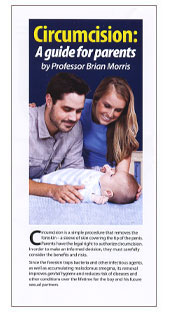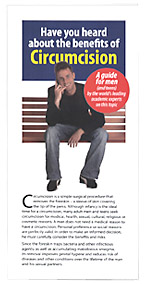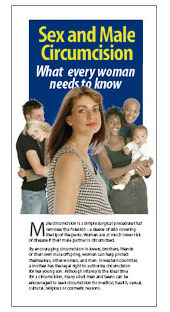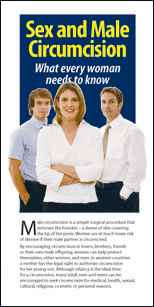Circumcision - Different Specialists See
Different Things
Neonatologists see only newborns and thus only see the problems of the operation itself performed on infants. In fact such problems occur in only a minor proportion of baby boys, and generally because of poor technique by an inexperienced operator. However, urologists who see and have to treat the problems of uncircumcised males of all ages cannot understand why all newborns are not circumcised [Schoen, 1990; Schoen, 1993].
Other health care workers in hospitals and aged care homes also have adverse comments concerning the uncircumcised penises they see and have to deal with, problems with catheters for urinary drainage in incontinent men and after prostate surgery, and the deranged reactions of elderly men with dementia when attempts are made to wash the genital area. Senile and confused elderly men often pull on their foreskin, causing it to retract up over the head of the penis and on to the shaft where swelling occurs, resulting in pain and possible necrosis of the distal skin. This is a medical emergency requiring immediate attention.
The demand for circumcision later in childhood has increased, but, with age, there is an inevitable increase in worry to the boy or man in the lead-up to having this done. Usually a more visible scar is left, the cost can be 10-times as great, the procedure takes longer, can require a general anesthetic, means time off work or school, meaning inconvenience, has a 10-fold higher (although still low) rate of complications, takes longer to heal, and means risk of sexually transmitted infections such as HIV if sex is resumed too soon, and offers a lower degree of protection against penile cancer than when performed in infancy.
Such considerations, coupled with the advantages of early circumcision, led Schoen to state "Current evidence concerning the life-time medical benefit of newborn circumcision favours an affirmative choice" [Schoen, 1993].



